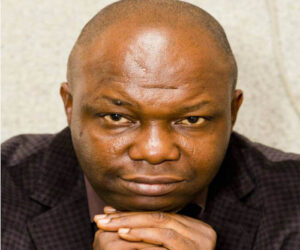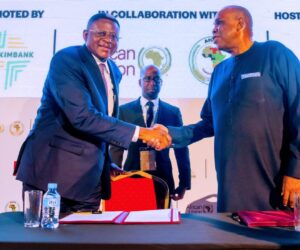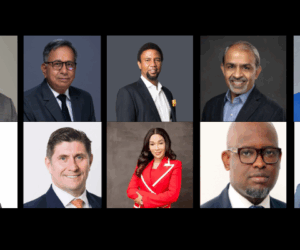Behind every industry-defining breakthrough is one common factor: having the right team. Even the most sophisticated technology remains hollow without people who can bring it to life with energy, conviction, and creativity. I have experienced this truth throughout my consulting and leadership journey. Time and again, I’ve seen brilliant ideas melt away because they were placed in the hands of the wrong team, and conversely, I’ve seen modest ideas grow into market-shaping forces simply because they had the right people driving them.
Despite this reality, most businesses still cling to an outdated mindset on how they hire and build their teams. The recruitment process in too many organisations is still rooted in tick-box exercises: years of experience, prestigious degrees, and CVs filled with bold titles. We celebrate the paper qualification but ignore the human potential. In doing so, we sideline the very qualities that distinguish good employees from transformational ones. If we are aspiring to build companies that thrive in disruption, our approach to hiring must radically change.
Largely, we have treated experience as the ultimate badge of competence. While experience brings knowledge, and rightly so, it is no longer the currency of innovation. The future of work in Nigeria, Africa, and globally demands something different: adaptability, resilience, and alignment with a company’s mission.
Have you noticed how quickly industries are being rewritten? In just a few years, financial technology companies have redefined banking in Nigeria and Africa at large. These fintechs are often led by young professionals who did not come from traditional finance backgrounds. If hiring managers had limited themselves to candidates with decades of core banking experience, they might never have seen unicorns like Flutterwave, Moniepoint, OPay or Chipper Cash emerge to challenge the status quo.
The rise in innovation and setup of unconventional startups should shift our mindset from obsessing over what people have done to exploring how they think, how they learn, and how they respond to uncertainty. Business leaders should consider attitude and the willingness to stretch, take risks, and persevere. I have seen that this is often a better predictor of success than the length of a candidate’s career history.
Too often, hiring managers equate impressive CVs with guaranteed results. There are countless stories of highly experienced individuals who stall projects because they cannot work with others, or managers who hit their targets but leave trails of demoralised teams behind them. Contrast this with the quiet team player who may not have the flashiest background but consistently inspires colleagues, builds bridges, and drives collective success. Which one truly fuels long-term business growth?
We must confront the celebration of credentials and learn to approach recruiting through the prism of the entire human being. Interviews should delve into values and ask such questions as, ‘What inspires you?’ How do you manage failure? Aside from personal achievement, what does success look like? These are questions that help clarify and determine whether a candidate can create cohesiveness or chaos. They are usually not discovered in a lofty CV. In a nation as youthful and vibrant as Nigeria, where collaboration across cultures, industries, and geographies is critical, recruiting for passion and values is not an option. It is a must.
In hiring, many organisations love to discuss culture fit. On the surface, it is awesome because we all want people who share our organisational DNA. However, there is a hidden danger here: when culture fit becomes the main criterion, it risks producing echo chambers. Everyone looks, thinks, and works in the same way. As we all know, homogeneity kills innovation.
What we need is not just cultural fit but cultural addition. This entails aggressively searching out individuals who contribute something unique to the table, such as new perspectives, fresh ideas, and uncommon experiences. It entails forming teams in which variety is not just allowed but celebrated as the source of creativity.
According to research conducted across worldwide marketplaces, particularly when handling complicated problems, it is discovered that diverse teams consistently outperform homogeneous ones. Nigeria, with its diverse languages, traditions, and perspectives, particularly delivers great results in teams. We have seen this play out significantly in our football and tech startups. True breakthroughs emerge from friction, disagreement, and the collision of diverse ideas. Hiring for culture adds guarantees that firms rethink the future rather than simply replicating the present.
Today’s young professionals are stepping into the workforce with bold expectations. They want meaning, growth, and workplaces that reflect their values. They are not afraid to walk away from organisations that fail to offer this. So, employers who remain stuck in the old hiring paradigm where resumes are king and experience trumps adaptability risk being left behind in the talent race.
The future belongs to organisations that are willing to hire differently: those that prioritise adaptability over rigidity, values over vanity, and culture over uniformity. In this era, organisations that perceive recruitment as curating communities of people who can think, act, and grow together in pursuit of a common goal will prosper.
As always, I submit that we do not lack talent; rather, we lack creativity in how we discover talents and how they are being utilised. If we can transform the way we source and hire, we will not only strengthen our firms but also unleash the full potential of a generation poised to lead the nation into a brave new future.
About the writer:
Deborah Yemi-Oladayo is the Managing Director of Proten International, a leading HR consulting firm in Nigeria, specialising in recruitment, learning and development, and HR advisory services. Email: [email protected]








